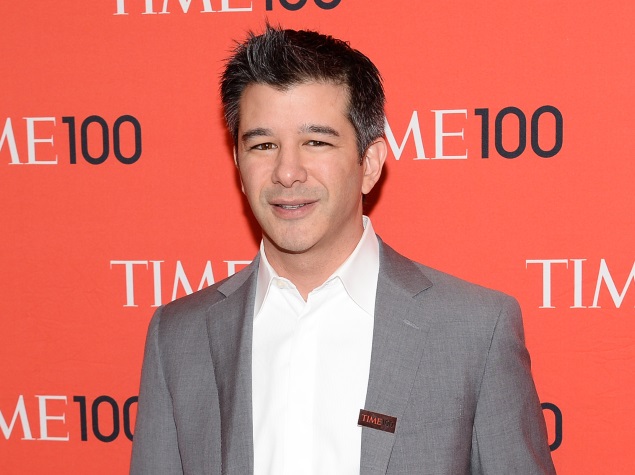We Will Work With Government to Establish Background Checks: Uber CEO

In the aftermath of the rape of a Delhi woman, allegedly by an Uber driver, many have raised criticisms about the way that the company operates.
Now, Uber's CEO Travis Kalanick has issued an official statement where he promises that the company will do "everything to help bring this perpetrator to justice and to support the victim and her family in her recovery."
"We will work with the government to establish clear background checks currently absent in their commercial transportation licensing programs," he added.
Since the company uses an app on a phone to track its drivers, it is very easy for the driver to simply switch off the phone, and go off the radar.
But what is perhaps more worrying is that the company - whose website claims to set the "strictest safety standards possible" has not responded to multiple queries from NDTV Gadgets, asking whether it carries out a police verification of the drivers it signs on. However, in a report, the police has said that it will take legal action against the US online service for failing to run background checks.
In an earlier statement, Uber has said, "In India, Uber exclusively partners with registered for-hire drivers who have undergone the commercial licensing process, hold government issued IDs, state-issued permits, and carry full commercial insurance." The company did not however respond to queries from NDTV Gadgets to know how these documents are verified, if at all.
A news report suggests that Uber might face further scrutiny from the Transport department, as the company does not have a rent-a-cab permit.
However, this is an issue which Uber is fighting globally, for various different reasons - the company's position is that it is not a taxi service, but rather, it serves as a platform that connects users and drivers.
In India, Uber has also faced troubles with the RBI, for its workaround that helped it to avoid using two-factor authentication of credit cards. The RBI has issued a circular in August mandating that companies that are providing services to users in India need to comply with two-factor authentication of credit cards, and last month, Uber tied up with Paytm to comply with the regulation. At the same time, Uber called the system an "antiquated solution"
(Also see: Before Addressing Payments, Taxi Firms Should Clear the Air on Privacy
What's emerging from all these developments is that companies like Uber are operating in a way that is poorly understood by the government. The need of the day might not be more laws but better oversight, and it is increasingly clear that users cannot blindly trust companies on their claims.
For the latest tech news and reviews, follow Gadgets 360 on X, Facebook, WhatsApp, Threads and Google News. For the latest videos on gadgets and tech, subscribe to our YouTube channel. If you want to know everything about top influencers, follow our in-house Who'sThat360 on Instagram and YouTube.
Related Stories
- Samsung Galaxy Unpacked 2025
- ChatGPT
- Redmi Note 14 Pro+
- iPhone 16
- Apple Vision Pro
- Oneplus 12
- OnePlus Nord CE 3 Lite 5G
- iPhone 13
- Xiaomi 14 Pro
- Oppo Find N3
- Tecno Spark Go (2023)
- Realme V30
- Best Phones Under 25000
- Samsung Galaxy S24 Series
- Cryptocurrency
- iQoo 12
- Samsung Galaxy S24 Ultra
- Giottus
- Samsung Galaxy Z Flip 5
- Apple 'Scary Fast'
- Housefull 5
- GoPro Hero 12 Black Review
- Invincible Season 2
- JioGlass
- HD Ready TV
- Laptop Under 50000
- Smartwatch Under 10000
- Latest Mobile Phones
- Compare Phones
- Moto G15 Power
- Moto G15
- Realme 14x 5G
- Poco M7 Pro 5G
- Poco C75 5G
- Vivo Y300 (China)
- HMD Arc
- Lava Blaze Duo 5G
- Asus Zenbook S 14
- MacBook Pro 16-inch (M4 Max, 2024)
- Honor Pad V9
- Tecno Megapad 11
- Redmi Watch 5
- Huawei Watch Ultimate Design
- Sony 65 Inches Ultra HD (4K) LED Smart TV (KD-65X74L)
- TCL 55 Inches Ultra HD (4K) LED Smart TV (55C61B)
- Sony PlayStation 5 Pro
- Sony PlayStation 5 Slim Digital Edition
- Blue Star 1.5 Ton 3 Star Inverter Split AC (IC318DNUHC)
- Blue Star 1.5 Ton 3 Star Inverter Split AC (IA318VKU)

















